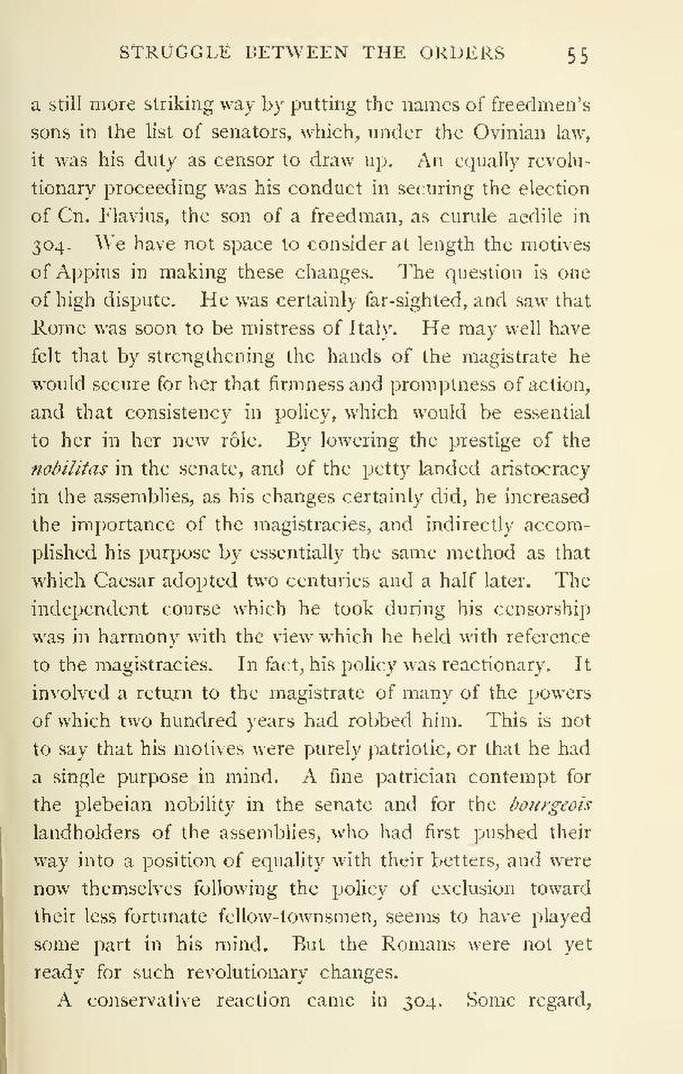a still more striking way by putting the names of freedmen's sons in the list of senators, which, under the Ovinian law, it was his duty as censor to draw up. An equally revolutionary proceeding was his conduct in securing the election of Cn. Flavius, the son of freedmen, as curule aedile in 304. We have not space to consider at length the motives of Appius in making these changes. The question is one of high dispute. He was certainly far-sighted, and saw that Rome was soon to be mistress of Italy. He may well have felt that by strengthening the hands of the magistrate he would secure for her that firmness and promptness of action, and that consistency in policy, which would be essential to her in her new rôle. By lowering the prestige of the nobilitas in the senate, and of the petty landed aristocracy in the assemblies, as his changes certainly did, he increased the importance of the magistracies, and indirectly accomplished his purpose by essentially the same method as that which Caesar adopted two centuries and a half later. The independent course which he took during his censorship was in harmony with the view which he held with reference to the magistracies. In fact, his policy was reactionary. It involved a return to the magistrate of many of the powers of which two hundred years had robbed him. This is not to say that his motives were purely patriotic, or that he had a single purpose in mind. A fine patrician contempt for the plebeian nobility in the senate and for the bourgeois landholders of the assemblies, who had first pushed their way into a position of equality with their betters, and were now themselves following the policy of exclusion toward their less fortunate fellow-townsmen, seems to have played some part in his mind. But the romans were not yet ready for such revoltuionary changes.
A conservative reaction came in 304. Some regard,
